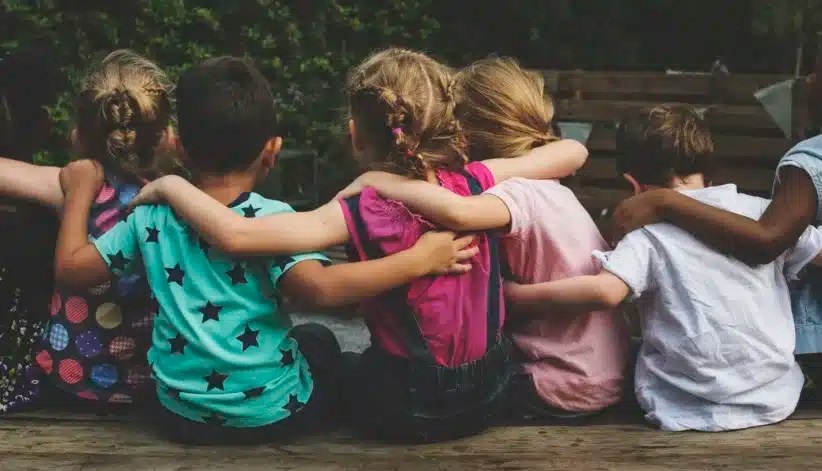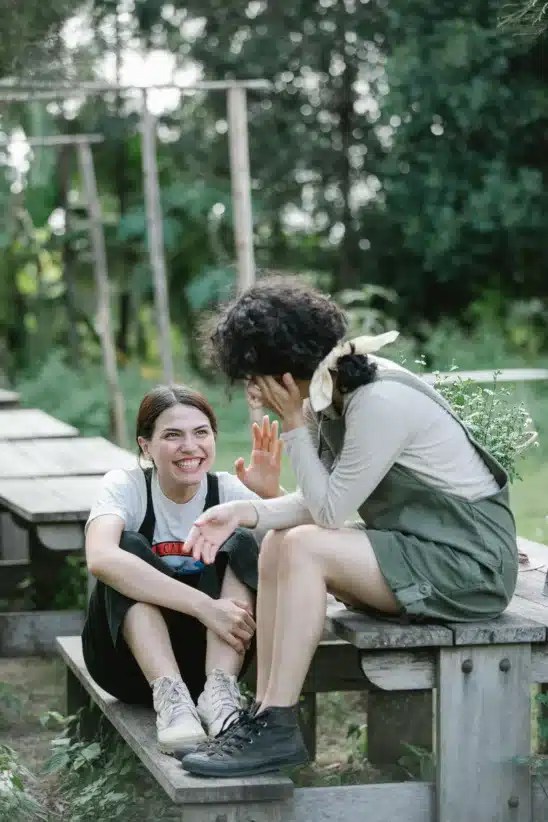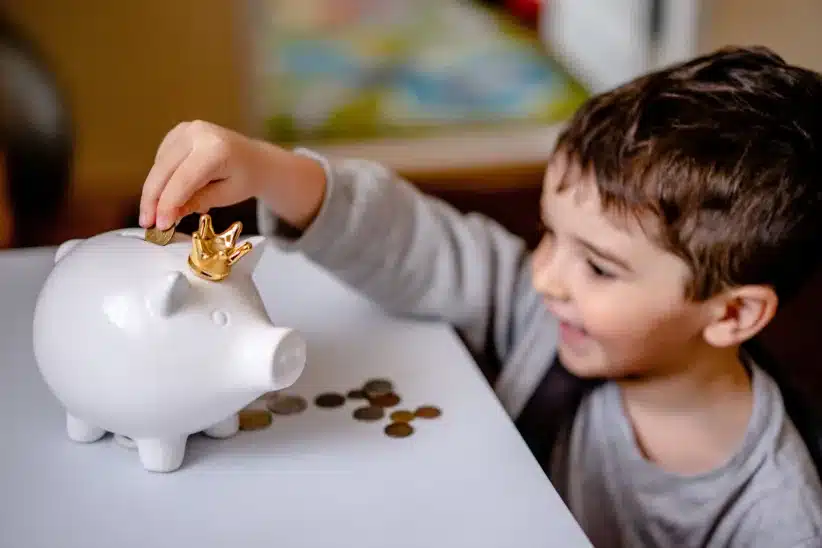 Is there any friend like a camp friend? Of course there is, though summer camp is such a unique and social experience, one of the best things about it is often the close friendships you make. There’s even some research: In a poll of campers, the American Camp Association (ACA) found that 96% say camp helped them make new friends and 92% say that people at camp helped them feel good about themselves. The research also showed that 69% of parents feel like their child remains in contact with friends made at camp.
Is there any friend like a camp friend? Of course there is, though summer camp is such a unique and social experience, one of the best things about it is often the close friendships you make. There’s even some research: In a poll of campers, the American Camp Association (ACA) found that 96% say camp helped them make new friends and 92% say that people at camp helped them feel good about themselves. The research also showed that 69% of parents feel like their child remains in contact with friends made at camp.
There are many reasons summer camp has traditionally been a place that helps foster friendships that can last years to a lifetime.
Summer camp is a community. Campers and counselors eat meals together, share in camp traditions and rituals, take part in activities together and at resident camp, live in bunks together for weeks at a time. Campers and staff become like family. For the majority of campers, being at summer camp is the first time they have lived with or eaten every meal with a group of people other than their family. As a community that lives, eats and participates in activities together, campers must learn to adapt, make decisions as a group and respect other people’s needs.
For many children, a reason camp friendships are so strong is because camp can be a respite from constraints at home and a place to gain confidence in social skills, which ultimately effect friendships. At home, children have gone to school with the same children for years and children may be labeled as the shy or the athletic child. At camp, you can reinvent yourself. Camp is an accepting community and a child can be themselves at summer camp.
Camp professionals are also trained in the management of group dynamics. Counselors are trained to empower children in their group to feel comfortable and encourage each child to contribute to the group. This shows each child that he or she is valued and gives children social confidence within the group. This helps children feel more comfortable with the people in their group, therefore making it easier for friendships to be formed.
Camps commit themselves to teaching campers to respect each other. If disrespectful or hurtful behaviors occur between campers, counselors are there to talk to the campers and make this a teachable moment, unlike in a classroom when sometimes these behaviors can go unnoticed and unresolved.
“Camp is a place where children participate in a wide variety of activities affording them the opportunity to succeed and fail amid a positive and supportive environment,” says Andy Lilienthal, Owner and Director of Camp Winnebago, a resident camp for boys in Fayette, Maine. “Because the worth of a child is not measured by the quality and level of their accomplishments but rather by the effort and attitude displayed, children have the unique opportunity to support and interact with each other through a range of emotions that helps fosters understanding, mutual admiration and tolerance—all integral ingredients to creating strong and lasting friendships that we see flourish all the time at camp.”
Ask many adult summer camp alumni today about their summer camp memories and they will recall the strong camp friendships and the bonds they still have with these friends today. Summer camps know camp alumni enjoy seeing each other every year to reminisce about summer camp traditions and to rekindle the magic of summer camp so they organize camp reunions for former campers and staff. At reunions, camp friends share stories, sing camp songs and take part in favorite camp activities. Each summer, Matt Baumoel, who attended a resident camp in New Hampshire for 13 years as both a camper and staff member, goes to his camp reunion. “Over the last 25 years, since leaving my summer camp, the bond among all of my camp friends has strengthened to family. When we return to camp for our annual in-camp reunion, it’s as if we never left. Now, nearly three decades later, I find it inspiring to see campers forming the same amazing bonds with each other that I did so many years ago.”
Sending your child to summer camp is a wonderful way for him or her to form new, long lasting friendships and to become part of a caring community. “As technology becomes a growing part of children’s lives, camp has become an even more valuable place for children to unplug and relate to each other in the ‘real world’”, says Rebecca Rhodes Rothman, Director of Deerkill Day Camp in Suffern, NY. “Whether it’s negotiating on the playground such as who is going to push the merry go round and who is going to ride on it, working together to create a group skit for the camp show, or deciding who is going to play what position in a soccer game, opportunities at camp abound for children to navigate new social situations and develop all-important life skills.”
Should Your Child Go to Camp with a Friend?
A question that parents often ask Renee Flax, the Camper Placement Specialist at the American Camp Association, NY and NJ. Her thoughts:
- Camp is a place where children can reinvent themselves. Your child has gone to school with the same children for years and may be thought of at home as the athletic child or the shy child. At camp, your child can be whoever they would like to be. It’s harder to do that when your child is at camp with a friend from home. Your child can have their camp life and home life.
- When you send your child to camp with a friend, your child will feel they have that friend to count on and might not be as outgoing in making new friends. One of the friends may also get closer to another camper and the child he or she came with could feel left out. You might run the risk of the children not being as close when they return home after the summer.
- If your child won’t go to summer camp without a friend, have a conversation with the camp director and let him or her know that these children are friends from home. Consider putting the friends in separate bunks. The friends will still see each other every day, but they will have the opportunity to be with new campers and push their comfort zone a little bit.
- Going to camp is a growth experience for children. For children who go without a friend, it lets them know that they can meet new friends and be independent and in the end, gain self reliance.
- Often parents will make a decision about camp based on the camp that their friends’ children attend. Unless your child is similar to theirs with comparable needs and interests and you both have the same values, you may find that the camp they find ideal for their child, might not be the right fit for yours. Do your own research and make sure you know and agree with the philosophy of the camp you are considering.





















